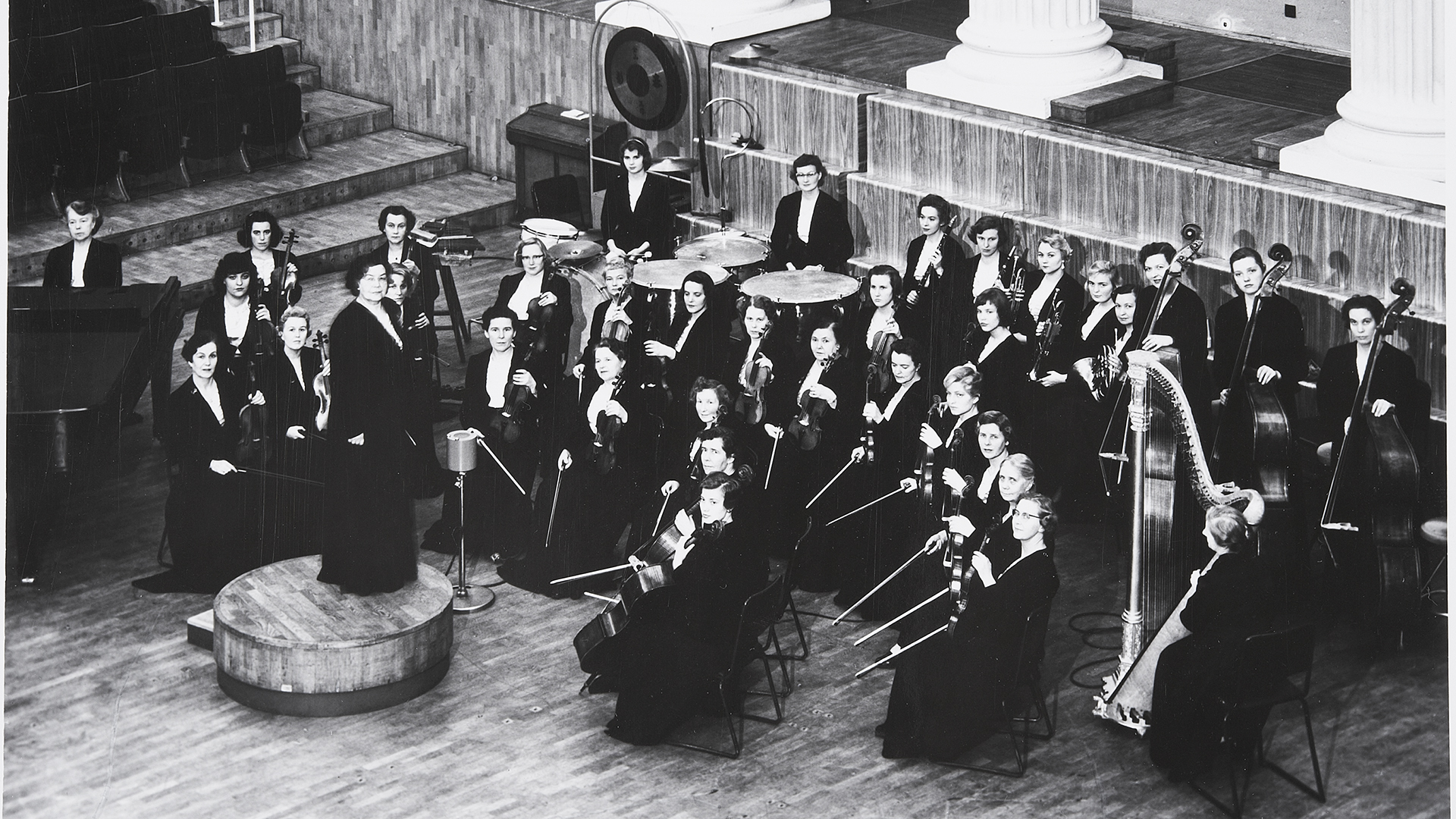Research collaboration in the HUOM project
Who are the sisters of Helene Schjerfbeck, Minna Canth and Dora Jung in Finnish music? We are seeking an answer to this question in the research collaboration part of the History’s Unheard Orchestra Music (HUOM) project. On the basis of music historical research, we are digging the archives to find the compositions of Finnish composer women, bring the works out of the archives and play them in Helsinki Philharmonic Orchestra so they can be heard. At the same time, we are producing new information about these composers and the significance of their music for today.
We are also uncovering other music that has been silenced by the prevailing power structures along with forgotten compositions in order to form a more accurate picture and comprehensive understanding of our music culture, the art field and society – both historically and in today’s world. This research is based on collaboration between science and the arts, linking musical heritage as a force for cultural renewal and building a more responsible future.
The research for the HUOM project is based on two major musicological research projects: Daughters of Music and Music Researchers in Society.
Daughters of Music
Daughters of Music (Sävelten tyttäret) is the first research project to study a large number of historical Finnish women and their music extensively and systematically on the basis of archival sources. Between 1850 and 1950 alone, at least a hundred composer women can be found in the history of Finnish music.
Although most of these composers focused on non-orchestral music, some composed orchestral works that can be performed as part of the HUOM project. Many of these compositions have either never been performed or have not been performed for long periods of time, typically 50 to 150 years. Some compositions that were performed on several occasions are now missing – such as symphonies by Ida Moberg and Betzy Holmberg, a piano concerto by Ingeborg von Bronsart, orchestral songs by Agnes Tschetschulin and a ballet by Heidi Sundblad-Halme. Even if these scores are never found, the search for them may produce other important material and information. There is certainly lots of music available and worthy to be performed again.
The question of the “Finnishness” of these composers is considered as loosely, openly and inclusively as possible in accordance with transnational understanding of the complexity of the cultural identities. Many of these composers under the study created international careers in the Nordic countries and elsewhere in Europe, they spoke several languages and they had diverse and multidimensional cultural backgrounds. Also in this regard, their life stories and works enrich our understanding of the history of Finnish music and its significance for the present day.
Music Researchers in Society
Music Researchers in Society (www.suoni.fi/musiikintutkijat-yhteiskunnassa) is a research project that promotes equality, inclusivity and diversity in Finnish music culture. Its basic idea is to conduct research together with the music field in such a way that the results can be seen and heard in practice, such as concert programming, audience outreach work, music publishing and music education.
Both research projects were initiated by the research association Suoni ry (www.suoni.fi/english), which developes activist music research. Both projects are at the same time collaborative projects between the Musicology department of the University of Helsinki and the Sibelius Academy and History Forum of the University of the Arts Helsinki (www.uniarts.fi/en/units/uniarts-history-forum/). The research part of the HUOM project represents historical, social and activist music research that is critical, action-oriented and change oriented. It seeks to develop creative methods of collaboration with actors in the fields of humanities, art, archives and cultural heritage, as well as to revitalise the culture of classical music for the 2020s and beyond.
The research part of the HUOM project is led by Associate professor of art research Susanna Välimäki (University of Helsinki). Within the Daughters of Music project, Professor Välimäki co-works with postdoctoral researcher Dr. Nuppu Koivisto (University of the Arts Helsinki) and with several collaborative partners. The music of women and other minority groups who have been neglected in both history writing and concert programmes is currently the subject of a broad range of scholarly and artistic work both in Finland and elsewhere.
You can read more about historical Finnish women composers in the following articles published by the National Biography of Finland, a partner in the HUOM project:
Ingeborg von Bronsart
https://kansallisbiografia.fi/kansallisbiografia/henkilo/10154
Ida Moberg
https://kansallisbiografia.fi/kansallisbiografia/henkilo/10166
Heidi Sundblad-Halme
https://kansallisbiografia.fi/kansallisbiografia/henkilo/10169
Agnes Tschetschulin
https://kansallisbiografia.fi/kansallisbiografia/henkilo/9090
A selection of the main archives used in this research work:
Helsinki City Archives
Sheet music archives of the Helsinki Philharmonic Orchestra
International Music Score Library Project (IMSLP)
Austrian National Library (Österreichische Nationalbiliotek)
National Archives of Finland
National Library of Finland
National Archives of Sweden (Riksarkiv)
National Library of Sweden (Kunglika biblioteket)
Royal Swedish Academy of Music, Stockholm (Kungliga Musikaliska Akademien)
Sibelius Museum
Archives of the Finnish Literature Society
Archives of the Society of Swedish Literature in Finland (Svenska Litteratur Sällskapet i Finland)
Uniarts Helsinki Archives
Sibelius Academy Library (Uniarts Helsinki)
Archive Collections at Åbo Akademi University Library
Photo: Finna - Conductor Heidi Sundblad-Halme and Orchestra for Women Helsinki

